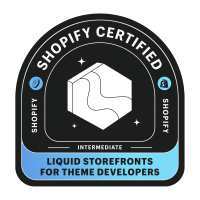What is B2B? #
The B2B (business-to-business) term encompasses all companies that develop services and products tailored for other businesses. It can cover SaaS products, B2B advertising companies, and similar. If you possess a small business, it is most likely that you will have to deal with a B2B business at some point in your journey.
What is B2B e-commerce? #
B2B e-commerce, or business-to-business electronic commerce, describes online purchases between organizations. Since orders are refined electronically, complete service provision covers dealers, manufacturers, distributors, and other kinds of B2B merchants.
Differences between business-to-business (B2B) and business-to-consumer (B2C) #
When selling to consumers, it is vital to understand their pain points. Consumers need to trust your brand, and they need to feel comfortable when purchasing from your company. It is all about emotion; it turns out that about 20% of the decision to make a purchase is logical, and 80% is emotional. Facts are being used to justify an emotional choice. Although consumers have various emotional motivations to buy products, purchase behavior is often the same.
Consumers purchase products for their usage because they like them (or think they do). Most of the time, they don’t need it. Therefore, consumers are not buying every day, and they are not buying a lot of products at the same time. In other words, order quantities and order value is relatively small. Also, purchases are being made just once in a more extended period for many consumer goods.
Since consumers buy because they like a particular product, emotion is essential for B2C companies’ business. By having art-like product designs, packages, and more, B2C retailers can forecast customers’ emotions.
When you are selling to other companies (B2B), there are a lot of differences compared to B2C. For B2B buyers, buying is part of their job. They need to make sure they buy all necessary products or services to keep their company up and running. They are not buying because they like something; they are buying to keep the business alive. Since organizations can be huge, they need many products or components to keep doing business.
Therefore, B2B buyers are often purchasing many products simultaneously. Also, since companies can grow fast and suddenly, their demand can increase too, in a very short period. Because of the repeat purchases, companies mostly make deals based on their monthly/yearly demand. Each B2B customer can have specific prices for certain products. Because products or services should meet the needs of many different employees in a company, B2B is a fact-based process. It’s not about the attractive packaging or similar, but the best value for the company.
What is a B2B e-commerce platform? #
The software-based service that helps with B2B deals is a B2B e-commerce platform. To be able to accomplish the preferred outcome, B2B e-commerce solutions must be:
- Adaptable: For offering a personalized and adjustable buying experience to B2B customers.
- Scalable: A scalable and durable software style is critical for future scalability needs.
- Reliable: User data protection is essential for every B2B organization.
- Simple: B2B e-commerce platform needs to be simple for customers to navigate and purchase, thus boosting conversions quickly.
B2B e-commerce features #
With interfaced shopping, the software program service is on top of the ERP system.
Info available in the ERP is being replicated into the e-commerce software, having its database that is being synchronized regularly. Basically – interfaced web stores save money as well as time. There are many benefits of incorporating e-commerce.
Consumer specific prices #
With an ERP-incorporated e-commerce solution, your product prices will undoubtedly be updated in your ERP system, not in your e-commerce platform. This indicates your internet store supports consumer-specific rates out of the box. So there is no need for additional custom-made software application advancement to have your price policy synchronized. Your consumer will have benefits from this because he can be confident that all prices are up to date when placing an order online.
Product discount rates #
Much like consumer-specific rates, uncomplicated item discounts in your online Internet shop will certainly be taken care of by your ERP system if you have an ERP incorporated e-commerce platform. Consider discounts activated by a mix of items or discounts based on a complete order value threshold. There is no need for you to take care of prices in 2 different locations, and consequently, inconsistency between ERP and the web store can not exist.
Tier prices #
If you make use of tier pricing in your ERP and have an ERP integrated shopping system, then tier rates are by default available in your web store. Your ERP system knows how to deal with tier pricing in combination with other rates policies, as discussed previously.
The more advanced your rates rules and trade agreements are in your ERP, the more you will take advantage of an ERP incorporated e-commerce platform. For your customer, this means being able to log in on your webshop and to see right away whether the appropriate tier rates make it eye-catching for him to order more of the same product at the same time.
Customer-specific product catalogs #
Businesses utilize client-specific item catalogs for different factors. They can use it for defining which products need to be available for which clients, based on region or the consumer’s consent (right to purchase specific products/brands). Or they can utilize particular consumer catalogs to create customer faves lists or compose checklists with item recommendations.
Suppose you already use customer details product brochures in your ERP and you have an ERP incorporated shopping platform. In that case, these client product brochure rules are quickly available on your web store. There is no need to synchronize this complicated information framework to your e-commerce system. Every consumer will see just those items online that you permitted to be noticeable for them in your ERP system. Your clients will have a tailored buying experience considering that they will only see the products which are available/relevant to them.
Real-time order placement #
One of the significant benefits of ERP integrated shopping platforms is real-time order placement. These platforms use the ERP to calculate, verify, and save the order straight in the ERP. All logic in the ERP system related to customer pricing, charges, handling fees, shipping costs, payment costs, and tax is used.
Recognition is done instantly, and the order is saved in the ERP system’s data source and sits there prepared for further handling. Indisputable pricing, supply problems, or neglected charges/costs can happen. No orders will be shed in intricate synchronization jobs, and there is no requirement to wait for the orders to be synchronized.
Re-ordering #
Based upon his order history, a consumer can conveniently put a re-order. ERP integrated e-commerce systems can supply this function based on all orders and invoices saved in the ERP system. Online and offline, placed orders and billings can be a starting point for a brand-new order. The company does not need to worry about price differences or item availability because the new order will indeed be validated and calculated by the most current information within the ERP. Once again, no room for mistakes.
Order history #
The ERP system stores a great amount of information. This information covers order history, invoices, returns, and shipping papers. ERP incorporated e-commerce systems can conveniently access all these details and documents, a huge advantage over non-integrated e-commerce platforms. With non-integrated e-commerce platforms, only data and files connected to e-commerce, based on orders positioned via the web store, are available.
Moving all the order history information from the ERP data source to the e-commerce data source is usually complicated and pricey for these systems. Providing your customer with a completely searchable and printable document life cycle: from quote to order and from order to invoice and shipping documents is a decisive benefit of ERP integrated e-commerce.
Faceted search #
In the B2B e-commerce market, you often deal with large product catalogs and products with many attributes. Customers must find what they are looking for quickly, so the website should offer them a well-converting, user-friendly webshop in order to make sales. An ERP integrated e-commerce platform allows you to define which product attributes from the ERP system should easily be used for your site’s search function.
Do you want to learn more about e-commerce? Continue reading about → Omnichannel e-commerce.

